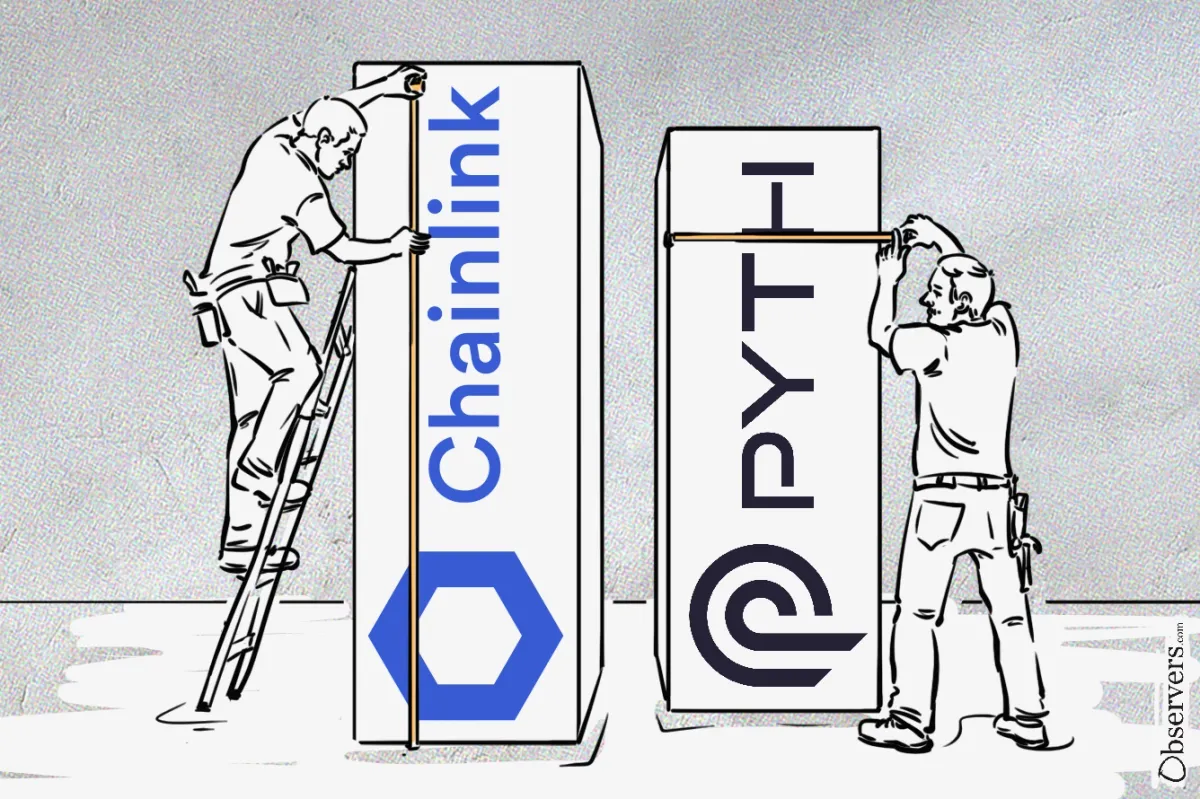
Historically, Total Value Secured (TVS) has served as one of the primary indicators for assessing an oracle’s market share. This metric evaluates the economic value protected by an oracle, which in turn reflects the potential value at risk if the oracle were to be compromised.
DefiLlama provides a dashboard that tracks the total TVS across major oracles within the market. According to this dashboard, Chainlink currently leads the sector with a market share of 44.62%.
However, analysts from Blockworks Research suggest that in the evolving world of DeFi, TVS may no longer serve as a useful indicator, as it does not accurately reflect the true demand for an oracle.
DeFi is undergoing significant changes. In the early stages of the DeFi market, each application's primary focus was addressing security issues and gaining users’ trust. However, in DeFi 2.0, the emphasis has shifted towards achieving greater speed of execution.
The demand for speed has ushered in a new era of oracles designed to deliver lightning-fast updates for DeFi 2.0 applications, with a particular focus on various perpetual exchanges.
In this context, TVS becomes less useful, as it solely reflects the worst-case security risk and is entirely unrelated to the actual demand for oracle pricing. While oracle activity is also highly significant, it is completely overlooked in the TVS metric.
TVS can significantly misrepresent the demand for oracle pricing from specific applications, either overstating or understating it. A case in point is Synthetix and dYdX, both of which utilize Chainlink as their oracle provider. Despite Synthetix having a total value locked (TVL) of $282 million at the time of the report, compared to dYdX’s $177 million, dYdX’s v3 trading volumes are more than 4.5 times greater than those of Synthetix. This indicates that the true demand for Chainlink price feeds from dYdX is substantially higher than that from Synthetix.
However, if we were to assess Chainlink solely from the TVS perspective, we might mistakenly conclude that Synthetix contributes more to its market share based solely on the locked value, disregarding the actual demand for price feeds.
To develop a more accurate measure of oracle fundamentals, analysts at Block Research introduced a new indicator, Total Transaction Value (TTV). This metric is calculated by aggregating the periodic trading volume of derivatives DEXs that rely on oracle updates for pricing.
This indicator reflects the true demand for price oracles and illustrates the actual value transferred using the prices they provide.
When calculated, TTV paints a markedly different picture from TVS. The top three leaders according to TTV are Pyth, TWAP, and Stork, with Chainlink ranking only fourth.
Chainlink has predominantly focused on push-based price updates and primarily caters to the low-frequency borrow-lend market. Currently, only about 3% of Chainlink’s $25 billion TVS is dedicated to servicing high-frequency derivatives trading protocols.
Chainlink’s limited activity in high-frequency price data niche has led to a significant loss in market share. In contrast, Pyth has strategically prioritized high-frequency data streams and is now the leading oracle by TTV.
As more advanced DeFi products enter the market, the demand for speed is expected to grow. To remain competitive, Chainlink will need to accelerate its efforts to deliver higher-frequency data stream products.
Notably, the Blockworks research report also highlights that major derivatives DEXs, such as Hyperliquid and Jupiter, are choosing to develop their own in-house oracle systems rather than relying on third-party oracle providers. This also indicates potential long-term challenges for major oracles in the space.

